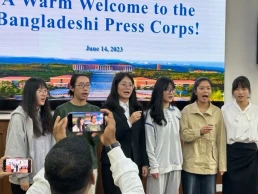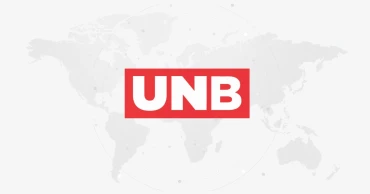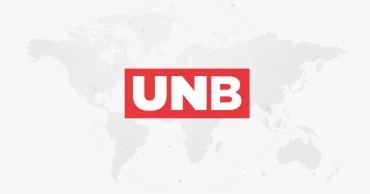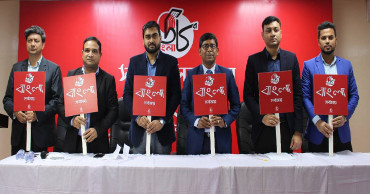Bangla language
Learning Bangla in China's Yunnan: Enhanced commercial ties drive growing interest
Five Chinese universities in Yunnan province have been teaching Bangla language and cultures to students that play a big role in promoting trade and business ties between China and Bangladesh.
According to teachers at the Chinese universities, interest in learning Bangla language is growing day-by-day among students, and Chinese people in general.
“Our students are really enjoying the Bangla language learning. We want more cooperation between Bangladesh and China in this academic field” said Prof Hu Jinming, vice president of Yunnan University, while meeting a group of Bangladeshi journalists who recently visited the university.
Prof Hu, who has visited Bangladesh a number of times to enhance cooperation between the University of Dhaka and Yunnan University, informed that he is now working to establish cooperation with other public and private universities in Bangladesh.
Read: Japan provides 500 million yen for 4th Primary Education Development Programme
He believes learning Bangla by Chinese students will enhance communications between the two nations and understand each other’s' culture.
Besides Yunnan University, the remaining other four universities in the province are Communication University, Peking University, Minzu University and Kunming University.
In addition, the teachers said, there are three universities in Wuhan, the capital of Hubei Province, that also teach Bangla language and culture.
Subarna Aktar, a Bangladeshi citizen who teaches Bangla in the School of Foreign Languages of Yunnan University, said many Chinese students are getting interested to learn Bangla because of the expanding trade relations between the two countries.
Read: Inadequate education budget hinders growth, students say; demand increase
Echoing Subarna, Mishkat Sharif, another Bangladeshi teacher at the Bangla Department in Minzu University, said those who learn the language have better job opportunities with different companies who have been doing businesses in Bangladesh.
"Some Chinese students after passing out of university are even setting up their own businesses and doing business with Bangladesh. It gives them an extra advantage to understand their customers' needs," Sharif added.
China has emerged as Bangladesh's biggest trade partner in recent years, with bilateral trade topping $27 billion in 2022, according to the United Nations COMTRADE database on international trade. Of that total, China's exports exceeded $26 billion, while Bangladesh's exports to China amount to less than $1 billion.
According to the teachers, Bangla Departments at the Chinese universities allow an intake of 20-25 students every other year to learn Bangla language and culture.
Read more: Budget 2023-24: Govt allocates Tk88,162 crore in education sector, up 8.2%
On the other hand, many Bangladeshi students are increasingly attending Chinese universities, especially in Yunnan, to study different subjects.
Currently, there are 121 Bangladeshi students studying at Yunnan University, Ahmed Moin Uddin, a graduate of the School of International Chinese Language Education, told UNB. In the last 10 years, more than 1000 Bangladesh students graduated from Yunnan University, he added.
2 years ago
Tracing the Roots of Ekushey Boi Mela
The Bangla language has always been at the forefront of our national identity. Amar Ekushey Boi Mela (Book Fair) is a significant part of Bangladesh’s history, culture and literature. Every year, the book fair is held in the month of February. It is the biggest book fair in the country where publishers display and sell printed books under diverse categories. This fair offers great opportunities for the readers to meet their favourite writers, poets, novelists, and publishers face-to-face. Besides serving as a platform to encourage readers to read and buy books, the Boi Mela also works as a monthlong cultural hub – showcasing the diversity of Bangladesh. Let’s look into the history of the Amar Ekushey Boi Mela.
CHITTARANJAN SAHA: STARTING BOI MELA FROM A MAT AT BANGLA ACADEMY PREMISES
Chittaranjan Saha was born in the Noakhali district in 1927. His publishing house Punthighar Prokashoni, located at Banglabazar in Dhaka, was burnt down in 1971. Chittaranjan Saha left Dhaka after March 26. He took shelter in Agartala and then moved to Calcutta (Kolkata) during the Liberation War.
During the Liberation War, many prominent writers, artists, and journalists from Bangladesh had to stay in Calcutta as refugees. During that period, Chittaranjan arranged a meeting with some of the most prominent litterateurs residing in Calcutta. They decided to write and publish about the injustice and war in Bangladesh (then East Pakistan). Thus, Muktodhara was born.
In February, 1972, Chittaranjan Saha laid a mat under the tree in front of the Bangla Academy building and put on display about 32 (33 according to some sources) books as a homage to the Language Movement martyrs of 1952.
Though Chittaranjan Saha initiated the Boi Mela from a humble beginning, according to some sources, he was not the first person who started selling books at Bangla Academy premises in February. Ruhul Amin Nizami of Standard Publishers started displaying Russian books. Those books were very popular at that time for their rich content and affordable prices.
Read More: Ekushey Book Fair to span entire February again after two years
HISTORY BEHIND THE FIRST BOOK FAIR IN BANGLADESH
Though Chittaranjan Saha is recognised as the initiator of Ekushey Boi Mela, the root of the book fair goes deeper.
The first book fair in then East Pakistan was held in 1965. The initiative was taken by Sardar Jainuddin, who was born in 1918 in Pabna.
In 1965, he started displaying some children’s books on the ground floor of the Dhaka University Library. At that time, he was working on a project for UNESCO regarding children’s books.
In 1970, Jainuddin organised a book fair in Narayanganj in association with Narayanganj Club.
As UNESCO declared 1972 the ‘International Book Year’, in December, Jainuddin took initiative to arrange a book fair inside Bangla Academy. Since then, Bangla Academy got directly involved with book fair events.
Read More: Bangabandhu Memorial Museum: Witness to History and Tragedy
THE JOURNEY OF EKUSHEY BOI MELA
Chittaranjan Saha continued putting books on display and selling them at the Bangla Academy premises for a few more years. In 1976, getting inspired by this idea of selling books, other publishers came together and joined in. Bangla Academy merged with this initiative in 1978.
Ashraf Siddiqui was the director general of Bangla Academy at that time, and he had an active role in the association of academy with the book fair. Bangla Academy’s association took Boi Mela to another level.
In 1979, a book fair was held at the courtyard of Bangla Academy with the collaboration of ‘Bangladesh Pustok Bikreta O Prokashok Samity’ (founded by Chittaranjan Saha) and the Bangla Academy authority.
Read More: Top Sculptures in Dhaka City
3 years ago
Amar Ekushey: Rab DG says security beefed up everywhere
Director General (DG) of Rapid Action Battalion (Rab) Chowdhury Abdullah Al-Mamun on Saturday said necessary security measures have been taken across the country for the smooth and peaceful observance of the Amar Ekushey and International Mother Language Day on Sunday.
5 years ago
Amar Ekushey: Nation ready to pay homage to language heroes
The grateful nation is set to observe the Amar Ekushey -- the Language Martyrs Day (Shaheed Day) and the International Mother Language Day -- on Sunday, marking the supreme of sacrifice of the language heroes for upholding the right to speak their mother tongue Bangla.
5 years ago
RFL introduces ‘Bangla in 68 years’ campaign
RFL, a leading conglomerate of the country’s has recently launched an awareness campaign - ‘Bangla in 68 years’ marking the International Mother Language Day (February 21).
6 years ago


.jpg)





